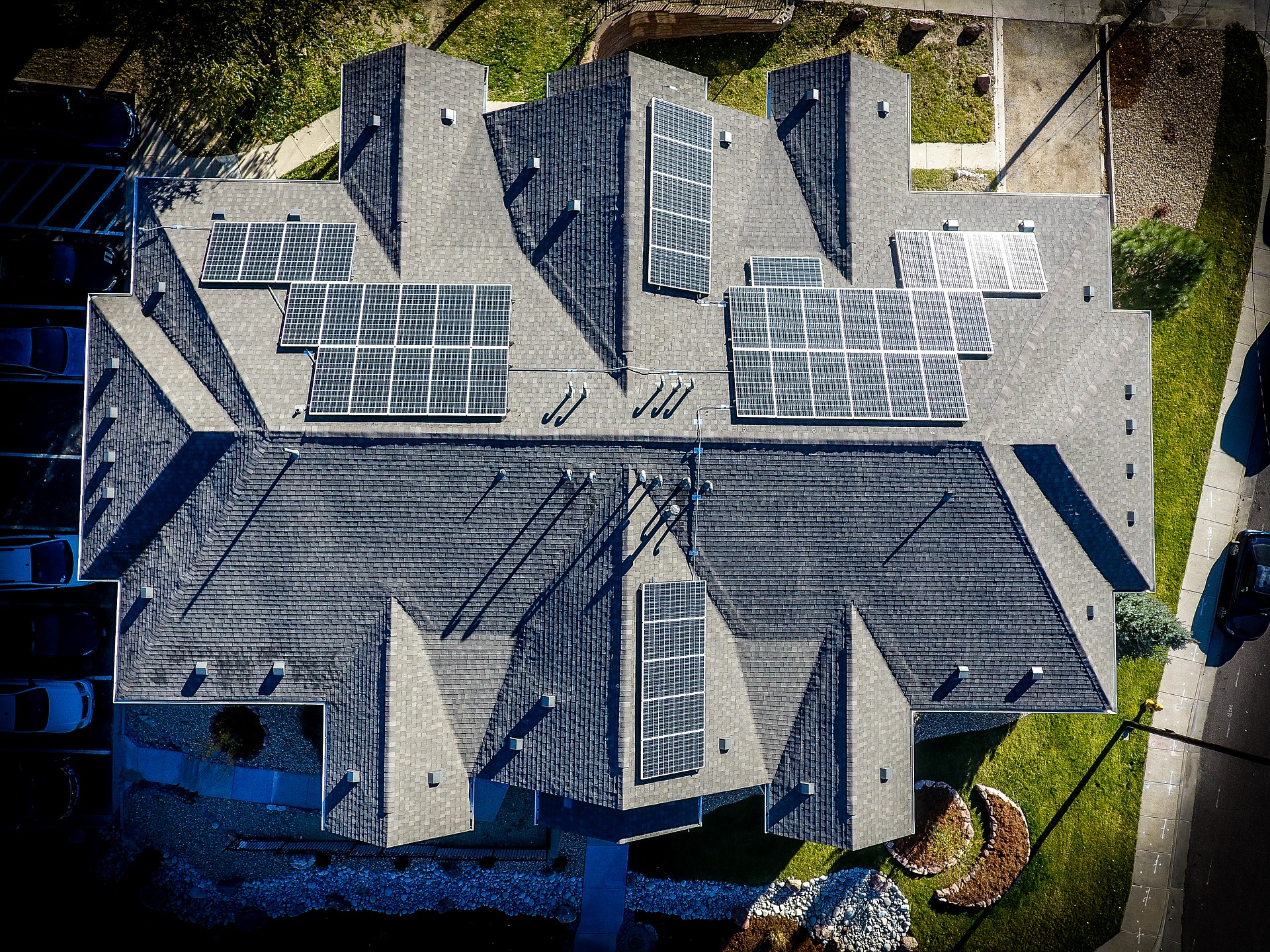A solar panel installation is a long-term investment, but just how long-term exactly? A common question when it comes to solar concerns the lifespan of the solar system. Solar panels generally come with a warranty somewhere in the region of 20 to 25 years, but is this an accurate representation of panel performance and degradation over time? Let’s take a look at some factors in the lifespan of a solar panel array and find out how long solar panels really last.
How Long Do Solar Panels Last?
When you’re considering a solar panel installation for your home or business, it’s important to understand the long-term nature of your investment. Understanding how long you can expect to benefit from your solar panels will put your initial investment into context. Any upfront costs associated with solar can suddenly seem a lot less daunting when you realise that these solar panels will be saving you money on utility bills for decades to come.
As noted above, solar panels usually come with a warranty of around 20/25 years. Furthermore, these warranties generally (depending on the manufacturer) ensure that your solar panels will continue to produce energy at something like 80% of initial peak output for the duration of the warranty. Doing the math, this shows an expected performance decrease of less than 1% per year across the span of the warranty.
Owing to the relative youth of solar PV technology on a global scale, there isn’t a huge amount of data available to make broad declarations about the lifespan of solar panels. Most residential and commercial solar panel installations have only been installed within the past decade or so, meaning there aren’t many examples of long-term installations to look at. However, the assurance from manufacturers, in the shape of a long-term warranty, suggests that the lifespan of solar panels is at least two to three decades, and likely even longer. The official word from SEIA (Solar Energy Industries Association) is that the average lifespan of a solar panel is between 20 and 30 years.
How Quickly Do Solar Panels Degrade?
While solar panels do last a long time, and continue to perform at a high level for at least the duration of their warranty, it’s important to note that some very slight degradation is inevitable. What does degradation mean in the context of solar power? It means that, as time goes by, your panels may produce slightly less energy with each passing year. Now, there’s no need to be alarmed by this fact, as the lengthy warranties attached to solar panels ensure a strong level of performance throughout their lifetime. Nonetheless, it’s worth mentioning this slight degradation factor.
The National Renewable Energy Laboratory (NREL) analyzed a number of studies on panel performance to determine long-term degradation rates. Thankfully, the results from NREL are very promising for the solar industry and the solar consumer. Previously, the rule of thumb had been something like 1% degradation per year, or just below it, but this analytical work by the NREL reveals a much brighter picture for solar panel degradation. It’s been found that the 1% rule is a harsh generalization for solar panels made before the year 2000—and a completely unrealistic figure for panels made after 2000, which, of course, are even stronger than their predecessors.
For modern, premium solar panels made with monocrystalline silicon, the rate of degradation is less than 0.4%—a much more positive number than the previously suggested 1%. This leaves solar panels performing at about 92% of their original peak output twenty years after the installation, a big improvement on the 80% figure that was often thrown around in the past.
Why Do Solar Panels Degrade?
Of course, despite the positive figures noted above, and the long-term quality performance of modern residential and commercial solar systems, you might ask, why does panel performance have to decline at all? Why can’t the panels perform at peak level for decades? What causes the panels to degrade over time? These are all totally reasonable questions from any prospective solar consumer, so let’s take a moment to explore why solar panels degrade over their lifetime.
Solar panels are an extremely durable piece of technology. Manufacturers put a lot of work into making sure their panels can withstand all kinds of harsh weather conditions, including heavy snow, strong winds, and unexpected storms. Manufacturers run a number of specific tests to ensure that their panels are well-built and ready for anything. However, a small amount of wear and tear (degradation) is inevitable over the course of twenty or thirty years of strong, consistent energy production.
Nonetheless, persistent UV exposure and extreme weather conditions will inevitably lead to some level of solar panel degradation. This depends on both the climate where the solar panels are situated, and the quality of the panels themselves. In extremely cold climates, frequent heavy snow loads can lead to quicker degradation. Conversely, in desert climates with intense sun, the heavy UV exposure can also increase rates of degradation. Thankfully, moderate climates, such as the climate of the northern United States face no such difficulties and can degrade at an extremely slow rate—possibly even as low as 0.2% per year.
How To Maintain Solar Panel Performance
As noted above, solar panels are built to last. They are extremely durable and capable of withstanding all kinds of weather conditions. In addition, solar arrays don’t contain any moving parts. For these reasons, a solar panel installation generally requires very little maintenance across its lifetime. However, there are some small steps you can take to ensure that your panels remain at their very best for as long as possible.
- Avoid Physical Damage: You likely won’t have to consider this after installation, as your solar installer will take this into account beforehand. If there are trees near your home or business, the installer will locate the panels to ensure that falling branches and other debris don’t damage the panels in future. Additionally, trees can cast shadows and lower panel performance, so installers will avoid them for this reason as well. The less debris hitting your panels, the slower the rate of degradation for your system.
- Install Critter Guards: Critter guards can be a very useful addition to a solar PV system and you should ask your solar panel installer about potentially installing critter guards alongside your solar system. If you’re already a solar owner, you can get critter guards installed after the fact as well. Solar panel critter guards prevent birds, squirrels, and other animals from getting in under your panels and damaging wires/mounting.
- Perform Maintenance: Although solar panels require little maintenance in order to perform effectively, it’s no harm to check in now and then just to be sure. In some cases, your installer or O&M (Operations & Maintenance) provider might even provide free maintenance. If not, you could contact them anyway, to seek some professional advice before performing/scheduling any maintenance.
Other Equipment: Batteries, Inverters, Mounting
We’ve spoken about solar panel warranty, establishing that it’s generally somewhere in the region of 20/25 years, but the panels aren’t the only equipment involved. A solar PV system is comprised of the panels, as well as other equipment like batteries, inverters, and mounting. Your panels have a long lifespan and a lengthy warranty to match, but what about this other equipment?
- Batteries: Like most pieces of technology, battery warranty can vary greatly depending on the item in question. Most solar installers will use a high-quality battery, probably lithium-ion or redox-flow, from a reputable manufacturer. Manufacturers can offer a warranty of up to 20 years for these high-end batteries.
- Inverters: Once again, different inverters come with varying warranties. The best inverter warranty on offer generally comes with microinverters, which can have warranties up to 25 years.
- Mounting: A number of factors determine the warranty of solar mounting. Like the batteries and inverters, the quality of the equipment plays a big role. However, mounting warranty is also determined by the location of the mounting—whether it is roof-mounted or ground-mounted. These differing factors mean that mounting warranty can be anything from 5 to 25 years.
Ultimately, the best way to understand the different warranties for your solar system is to ask directly. Your solar panel installer can tell you what warranties are on offer for each aspect of your specific project, giving you peace of mind for your clean energy future.
If you’re interested in going solar, contact YSG Solar today. We take care of the whole process from start to finish so you can start saving on your utility bill right away. To learn more about the process and get a better idea of what you could save, send an email to info@ysgsolar.com, or call us at 212.389.9215.
By Shane Croghan
Sources:
https://news.energysage.com/how-long-do-solar-panels-last/
https://www.greenmatch.co.uk/blog/2015/01/the-lifespan-of-solar-panels
https://www.solarpowerworldonline.com/2017/01/life-expectancy-solar-array/

